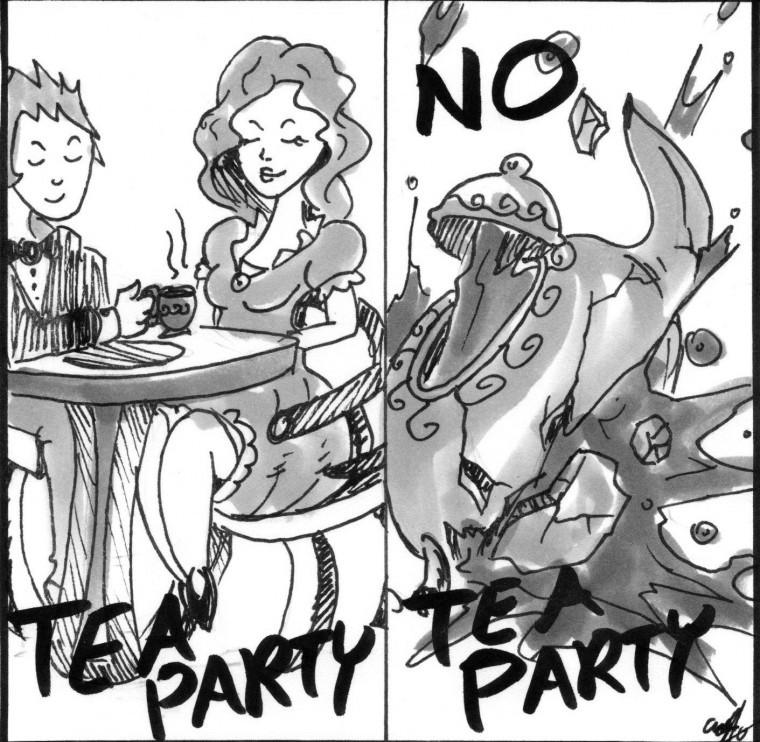The Tea Party is dangerous to the U.S. political discourse
October 6, 2010
With elections coming up, no political movement is garnering more national headlines than the Tea Party. Spearheaded by dynamic figures such as Sarah Palin and Glenn Beck, the movement is riding a wave of anti-establishment backlash to surprising electoral victories.
However, I would like to point out some disconcerting potentialities that may occur were the Tea Party Movement to gain any real political power.
The first thing I am worried about is how this particular party will change the American political culture. Although there has been a fringe as long as there has been a political spectrum, the majority of voters typically resided somewhere in the moderate middle. Therefore, both Democrats and Republicans usually had to compromise on issues and legislations to appeal to these moderates.
Unfortunately, this has led to the perception that nothing is actually getting accomplished on either side, resulting in the apathy, if not outright frustration, of voters. The Tea Party has capitalized immensely on these feelings and created a well-organized political movement out of them.
The reason that this concerns me is because it is going to shift the balance of the political conversation further towards the fringe right. In order to counteract this, the Democrats will be forced to either try to appeal to the conservative moderates who feel left out from the extremist movement or similarly move towards the fringe left. If they chose the latter, then I believe it would lead to an era of increasingly reactionary politics, in which the power would shift every couple of years due to public dissatisfaction.
“For me, I think [the Tea Party] is trying too much to force an ideological divide,” said James Boesen, graduate student of political science. “It seems they’re opposing certain policies instead of promoting a coherent platform.”
The second aspect that worries me is the actual political experience of some of the candidates–or lack thereof. Palin, whom many expect to run for president in 2012, only served as governor of Alaska for two and a half years before resigning to write a book, work for Fox News and host her own reality TV show. To me, this sounds like someone much more concerned with basking in the limelight than governing a nation.
And yet, she has continually demonstrated her political power by endorsing obscure candidates like Joe Miller and Christine O’Donnell to unlikely victories. This is despite the fact that O’Donnell has been beaten twice as a Republican candidate in Delaware’s senatorial races and neither her nor Miller have ever held a public office.
In addition, Palin has repeatedly alluded to the fact that she would consider Beck as a running mate. Beck, who is most famous for his controversial show on Fox News, began his career as a top-40 radio DJ and has also never held a public office.
Although I want to state this delicately, it warrants mentioning that Palin and O’Donnell identify themselves as some type of evangelical Christians. I do not think that this means we are on the verge of any sort of theocracy, but it would be ignorant to assume that their faiths do not directly influence their positions on social issues.
“Sarah Palin has stated that she wants abortion to be the key issue of the 2010 primary elections,” Boesen said.
So when you go to vote this November, remember that political buzzwords like “Washington outsider” and “going rogue” are just other ways to say “radically inexperienced.”







